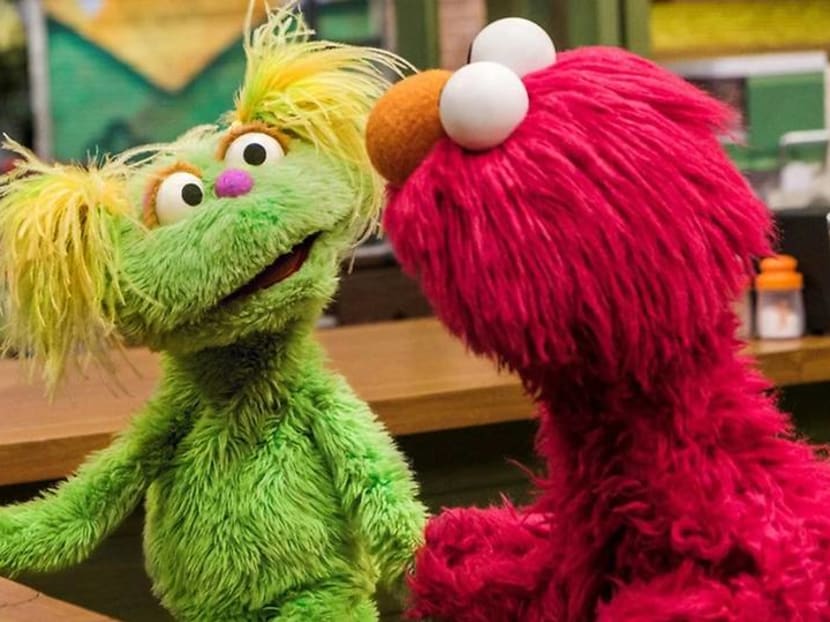Sesame Street's latest muppet has a mum struggling with addiction
The children's show is tackling the issue of parental drug and alcohol abuse in a series of online episodes. In one, Karli tells her friends that her mum "needs help learning to take better care of herself."

Karli's mum "needs help learning to take better care of herself." Photo: Zach Hyman/Sesame Workshop
Remember the Sesame Street character, Karli, who was introduced in May as being in foster care? The reason for that has been revealed in a series of new episodes.
It turns out that Karli, the six-year-old green muppet with yellow hair, is staying with foster parents because her mum has a “grown-up problem” and is in recovery.
In one of the short videos under the subject of Parental Addiction, Karli tells Elmo, Abby Cadabby and her other friends that her mum had to go away for treatment and that she’s now in recovery.
She said: "My mum needs help learning to take better care of herself. So she talks to people with the same problem."
Karli also reveals that she, too, goes to a special meeting for kids where they can share their experiences.
The new set of videos also features Salia, a 10-year-old character whose parents have dealt with addiction before.
The videos are available online through Sesame Street in Communities, which also provides tools to help further discuss the subject with children. The project is run by Sesame Workshop, the non-profit organisation behind the show.
It’s the first time the series is addressing the issue of addiction, which, according to a statement by Sesame Workshop, affects about 5.7 million children under the age of 11 in the US who live in households with a parent with a substance abuse disorder.
According to Sky News, the scenes were put together with the help of a children's therapist, Jerry Moe, who was one of the advisers for the initiative.
"These boys and girls are the first to get hurt and, unfortunately, the last to get help," he said. "For them to see Karli and learn that it's not their fault and this stuff is hard to talk about and it's okay to have these feelings, that's important. And that there's hope.



